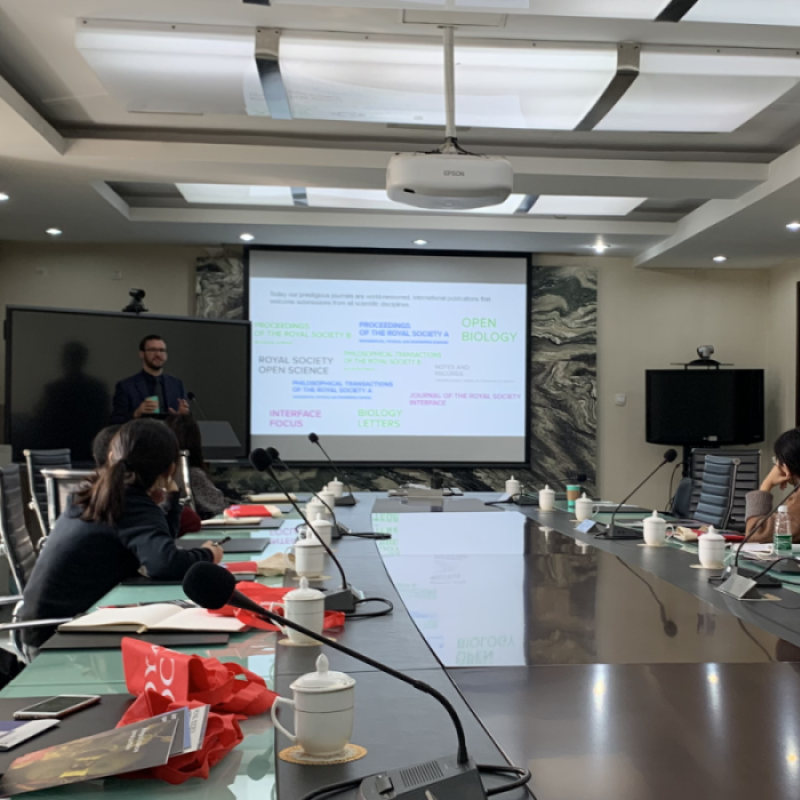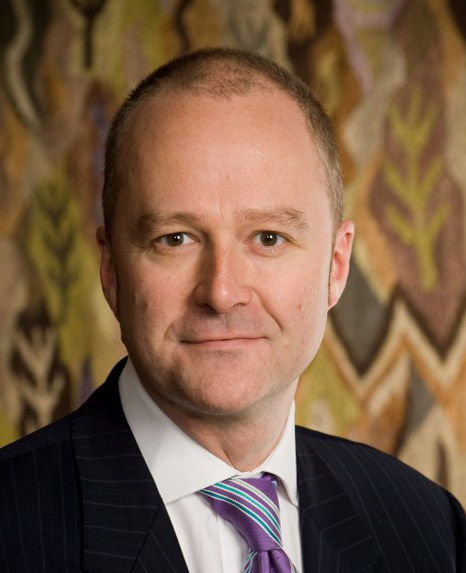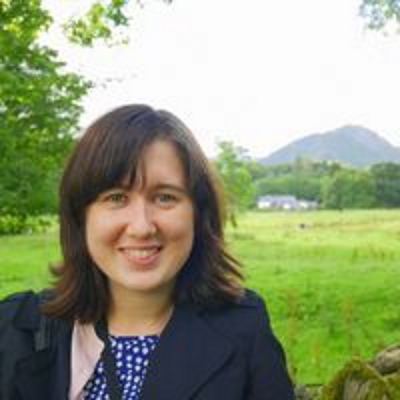As part of our continued outreach to international authors, editors and early career researchers, Andrew Dunn, Senior Publishing Editor for our journal Royal Society Open Science, took a trip to China. After spending six days in and around Beijing, he tells us where he went, what he did and, perhaps most importantly, what he learned.

Why did you choose China for your recent outreach trip?
There were two main reasons: (i) we have seen a huge rise in submissions to our journals from China. This growth has been particularly noticeable in the journal I look after, Royal Society Open Science, where 27% of all accepted manuscripts in the past year have come from China. Also (ii) the Royal Society has always enjoyed a long, rich history of exchanges with China. Cooperation dates back to the seventeenth century and, today, the Society holds formal ‘Memorandums of Understanding’ with the Chinese Academy of Sciences (CAS), the Chinese Association for Science and Technology (CAST), the Chinese Academy of Medical Sciences, and the National Natural Science Foundation of China (NSFC). As recently as May 2019, the Royal Society and the Chinese Academy of Sciences signed a joint statement on working together.
How did you go about arranging your trip?
Following the example of a number of my colleagues, I contacted various editors in Beijing to explore whether they would be interested in hosting a workshop on ‘best publishing practice’ and ‘guidance on how to get research published’. The response was extremely positive, and this encouraged me to seek the right venues and then book the trip, which was scheduled for the end of October. Working closely with our colleagues in the Society’s International Section was a real help, leading to invitations for me to speak at two Chinese conferences (see below).
What did you hope to achieve?
Our experience of talking with early career researchers has shown us that they have questions and worries about submitting their work to scientific journals. First, they want to ensure that they submit their work to a reputable journal (everyone wants to avoid the so-called ‘predatory publishers’) and then they want to ensure that they submit to the right journal, one that is a good fit for their work. They also want to know more about making their paper the best it can possibly be, which means they are keen to know more about how to improve the quality of a paper and how to avoid plagiarism. For international researchers, language – and how to improve language – is also one of the key priorities. Finally, early career researchers are interested in learning more about the editorial processes. What happens to their paper after it has been submitted, and what happens during assessment and review? I saw my trip as the perfect opportunity to answer some of these questions, and to address some of these worries. I also talked about post-publication issues such as the discoverability and visibility of a paper.
Where did you go? And who did you meet?
I was lucky enough to present to research groups at a number of venues, including both Tsinghua and Peking Universities (two of the most prestigious in China), and also at a number of institutions affiliated with the Chinese Academy of Sciences. During my visit to China, I was honoured to be asked to present a short talk to the World Conference on Science Literacy on the work we have been doing to improve the diversity of our author, reviewer and editor base.
I was also invited to present on the general theme of science communication to an audience of Chinese Academy of Science Public Information Officers at their annual conference, which was held at the FAST radio telescope. They wanted to understand more about how the Society promotes public engagement with science and technology in general, and they were interested in learning how they could support their home institutions’ academics in promoting their research. It was a privilege to be able to share our experiences and to also learn from them.
What did you learn?
It was clear that the Royal Society and its journals are well-regarded by Chinese audiences. It was also clear that people appreciated the time invested in making the trip and were grateful for the opportunity to meet the human being behind the journal, rather than always staring at a screen or relying on online interaction. They valued the face-to-face discussions and debates around the many challenges authors encounter when they are selecting journals for their work, and welcomed the opportunities to get so many common questions answered.
We hope to undertake more of these types of trips in the future so that we can get out and about to meet our authors and show how serious we are about supporting them and their research.
We would like to thank all the Chinese institutions for supporting us in our outreach efforts, as well as Charlesworth Author Services who were a great help on the ground. If your institution is interested in hosting one of our workshops, please contact us. If you need help with language editing prior to submitting your manuscript, we’ve negotiated a 10% discount with Charlesworth Author Services for all Royal Society authors who require the service.





